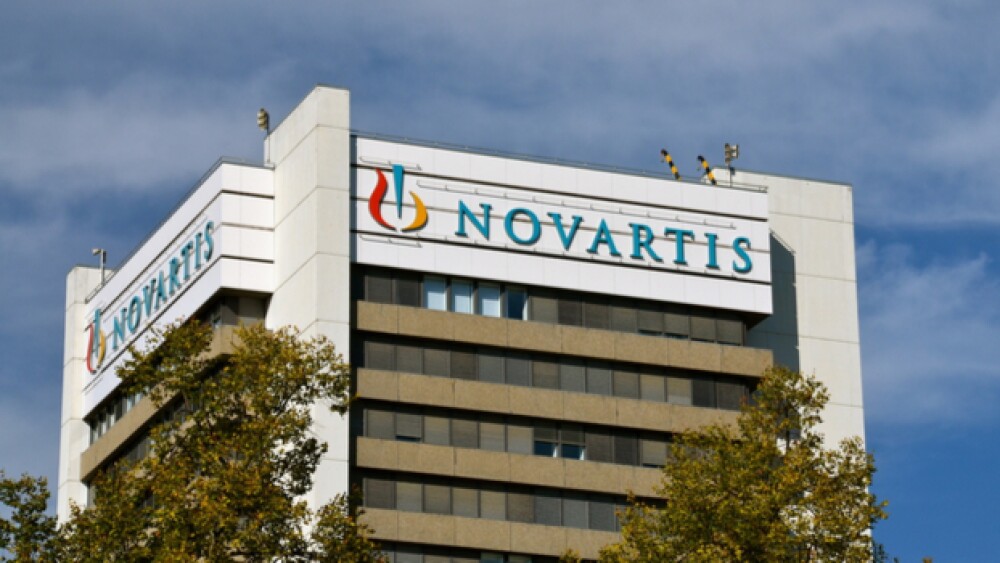Typically, fewer than half of kidney transplants last 10 years. As a result, durability is definitely a significant unmet need for patients who have had a transplant or are waiting to receive one.
lucarista / Shutterstock
Novartis released early-stage histology data in kidney transplants at the American Transplant Congress (ATC). The histology data suggests that the company’s iscalimab (CFZ533) might prolong the lifespan of kidney transplants, with the result of improving long-term outcomes for the transplant patients.
Typically, fewer than half of kidney transplants last 10 years. As a result, durability is definitely a significant unmet need for patients who have had a transplant or are waiting to receive one. Currently, more than 100,000 patients are on the transplant waiting list in the U.S.
Iscalimab is a fully human, monoclonal antibody that prevents the cluster of differentiation 40 (CD40) pathway signaling and activation of CD40+ cell types. The primary endpoint of the clinical trial was non-inferiority on the composite endpoint. In it, iscalimab therapy was non-inferior, improved renal function, decreased the risk for new onset diabetes, and had a similar safety profile to tacrolimus, an immunosuppressive drug.
The data presented suggested that the iscalimab treatment preserved the quality of transplanted kidney grafts. It showed lower chronic allograft damage index (CADI) scores compared to tacrolimus. In addition, normal renal histology was observed in three of five patients, or 60%, on iscalimab compared to zero out of seven on tracolimus.
Low CADI scores are associated with better long-term outcomes. The company expects to confirm the data in an ongoing Phase IIb clinical trial.
“Extending the life of transplanted kidneys would mean fewer patients going back on dialysis or needing a second transplant—relieving pressure on waiting lists that in the U.S. are already three-to-five years long,” stated Eric Hughes, Global Development Unit Head, Immunology, Hepatology and Dermatology for Novartis. “In our journey to reimagine care for patients, I’m excited about the potential of durable transplants becoming a reality.”
Allograft biopsies weren’t required in the study protocol but were performed on a subset of participants. At one of the research sites patients were offered extended therapy and a separate protocol allowed for the biopsies. A pathologist, under blinded conditions, reviewed and scored all the biopsy slides using established Banff criteria and determined the CADI.
It’s been a busy week for Novartis, coming off several announcements. It announced at the 2019 American Society of Clinical Oncology (ASCO) Annual Meeting results from the COMBI-d and COMBI-v clinical trials, indicating that first-line treatment with Tafinlar (dabrafenib) and Mekinist (trametinib) had overall and progression-free long-term survival benefits to patients with unresectable or metastatic BRAF-mutation positive melanoma.
Also at ASCO, it announced new data and clinical trial updates in non-small cell lung cancer (NSCLC). It released primary efficacy data from the GEOMETRY mono-1 Phase II clinical trial of capmatinib, which looked promising in patients with locally advanced or metastatic NSCLC that have MET exon-14 skipping mutations. The drug recently received Breakthrough Therapy Designation for this indication from the U.S. Food and Drug Administration (FDA).
Novartis also provided updates on the CANOPY clinical trial program. CANOPY is three phase III trials studying canakinumab, a selective IL-1B inhibitor. CANOPY-A is studying the drug as adjuvant therapy in adults with stages II-IIIA and NSCLC after complete surgical resection. CANOPY-1 is a Phase III trial comparing canakinumab to placebo in combination with platinum-based chemotherapy and pembrolizumab (Merck’s Keytruda) in previously untreated patients with stage IIIB/IIC-IV squamous and non-squamous NSCLC. CANOPY-2 is a Phase III trial of canakinumab or placebo plus docetaxel in stage IIIB-IV NSCLC patients previously treated with checkpoint inhibitors, as well as platinum-based chemotherapy.





